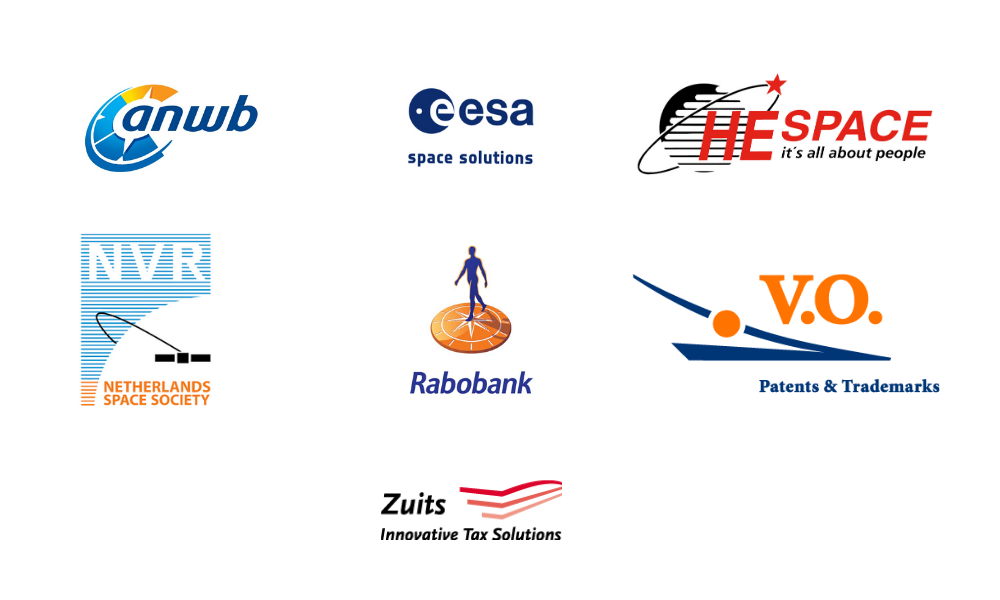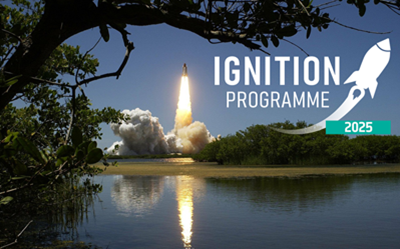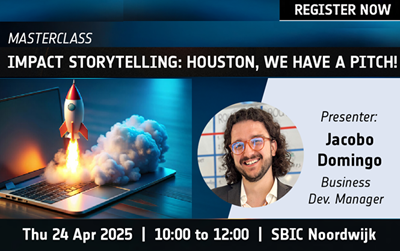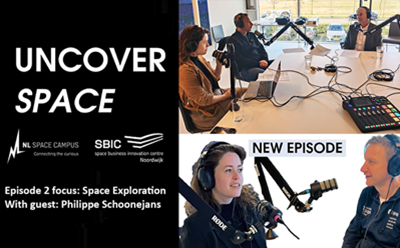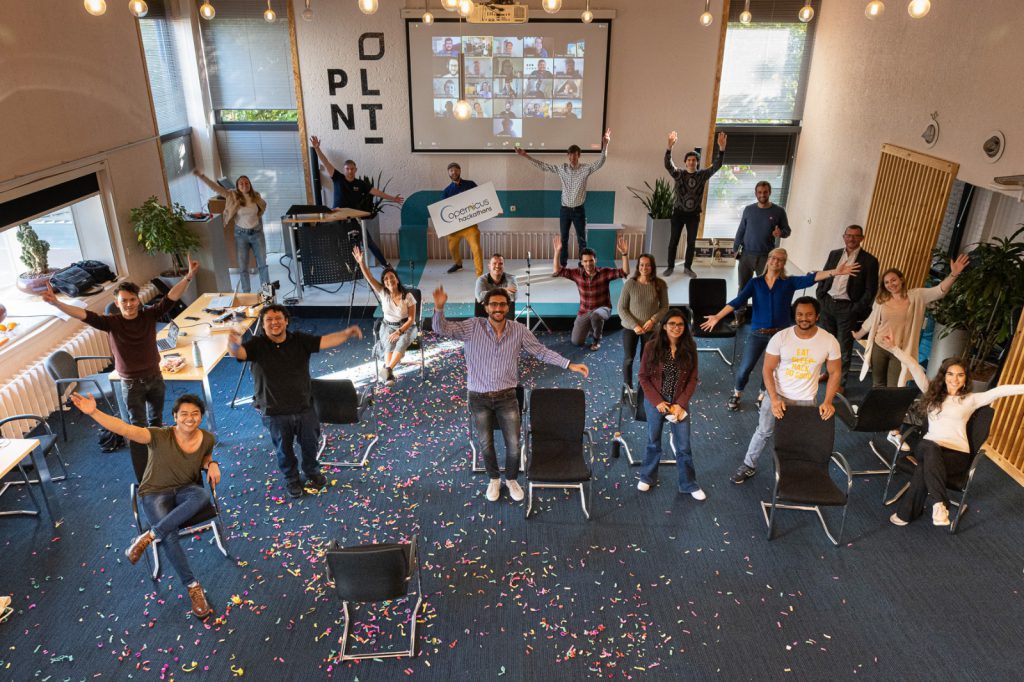
In the weekend of 12&13 September, 27 participants went to solve world problems with space technology. The Copernicus Hackathon, organised by SBIC Noordwijk and PLNT, was a hybrid event so people could enter both online and offline. With challenges like COVID-19, SDG smart cities and inclusion & diversity, society’s stakes where pretty high. Luckily, every team came up with a solution. The winning team created a tool called ‘SmartLander’ which is able to give recommendations on urban planning in megacities.
The team consisted of Marco Morales and Harmen van Oosten who attended the offline version in Leiden. They were joined online by Mahabir Gupta from Sweden, and Manuel Soto joined from the UK.
From the start, the team proved to be very ambitious and active, as they already started networking prior to the hackathon. The team already was near perfect.
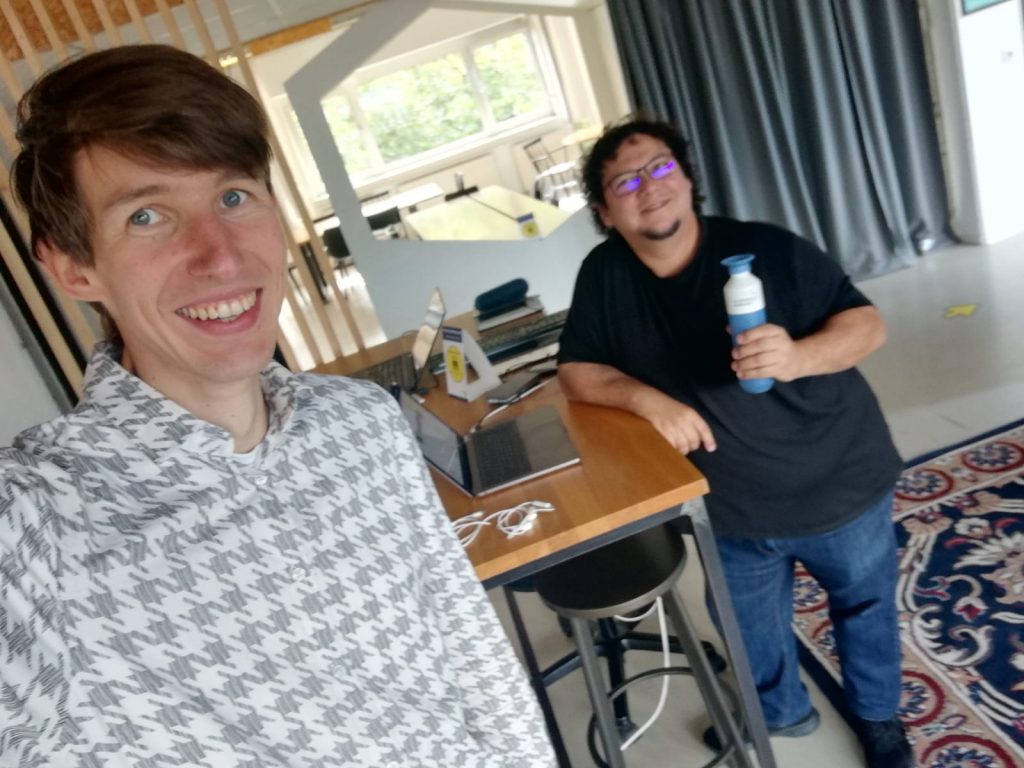
Marco: “Me, Harmen and Mahabir met on the Hackathon chat the week before and I guess we ‘clicked’ with each other’s introduction and personality on Slack. Meanwhile Marco had reached out in his network for a GIS expert, and his cousin suggested a colleague – and that’s how Manuel joined! We all just clicked really well. During the matchmaking at the hackathon we couldn’t really find someone who would complement our skills so it was just the four of us.”
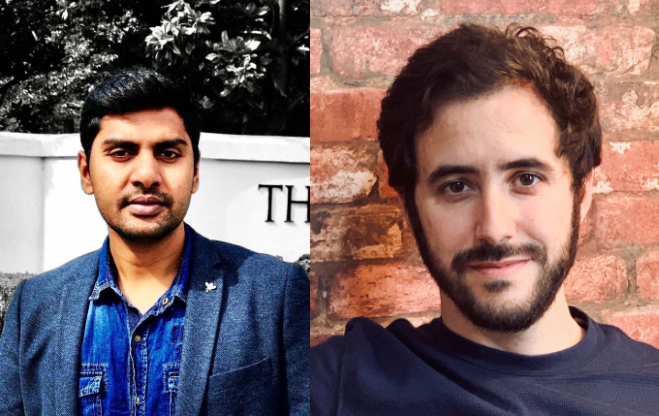
The winning idea: urban planning & earth observation
So, what’s the winning business idea? Marco explains: “Our tool ‘SmartLander’ leverages Copernicus data to identify what works and what doesn’t in existing mega-city ecosystems, in order to make context-ready recommendations for yet-to-be developed urban masterplans. Ultimately, it will leads to sustainable, weather-proof cities of the future. This is done in record time (minutes instead of weeks) and with a learning engine to detect complex patterns beyond human capacity, in line with UN SDG #11: Make cities inclusive, safe, resilient and sustainable.”
How dit they do it exactly? “We used AI analysis of current and historical data from satellite data of existing megacity built-and-social environments to identify risk patterns and best-practice based on existing cases.”
Jury member Sjoerd Louwaars, Director of Innovation of PLNT, explains why this team had won this edition of the Copernicus Hackathon. “First of all, their solution is extremely relevant as megacities keep growing. Next, one of the team members actually encountered this problem in his daily job, so the team could make less assumptions. Last but not least: of course the solution is not 100% perfect, but the team is great in skill diversity. They have the capacity to actually further develop this idea.”
Next steps and advice
As a winning team, the four participants won a spot in the Copernicus Accelerator, among plenty of other support to make their idea a reality. “Right now, we want to understand the options we have, list the steps we need to take, create a roadmap and explore how the prize(s) can help us get there”, Marco said.
And what kind of advice would the team give to participants to future hackathons? “Meet a few times before, organize a clear calendar, keep the communications open and constant, and think of your project as if you are going to build your business starting next week.”
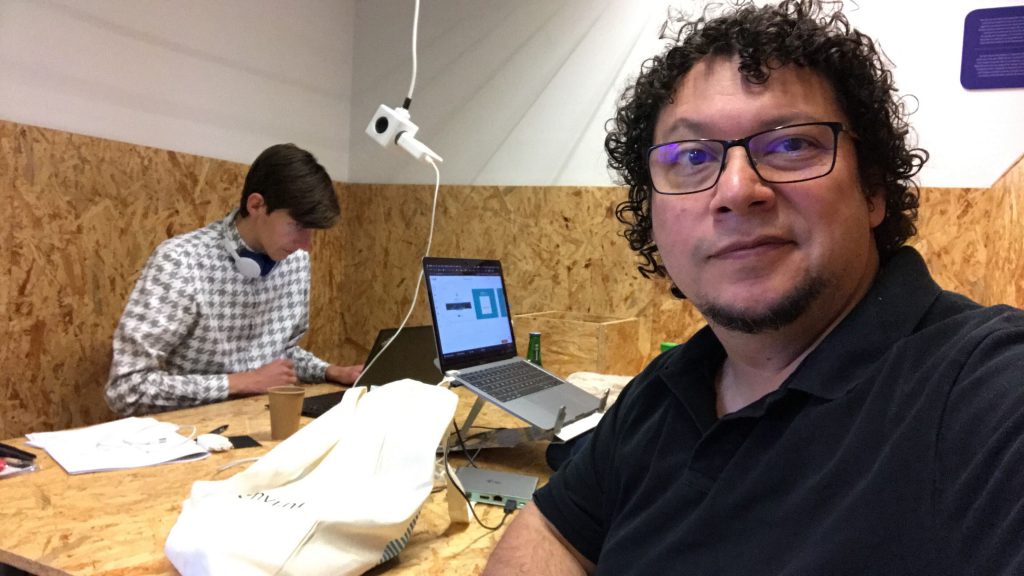
Copernicus Hackathon Leiden experiences
So, let’s have a look at the anatomy of this winning gathering of space hackers. What is their drive, what did they learn? A closer look at team ‘SmartLander’:
Why did you decide to join the Copernicus Hackathon?
Marco: I love space! I wanted to test how Design Thinking could power-up a space and scientific project, and to work alongside engineers and scientists also passionate about space, coming up with great ideas to benefit the world. To hang out with smart people doing clever things that would benefit humanity, while leveraging space observation. What’s there not to love?
Harmen: I am passioned about earth observation (EO) and I really like to meet like minded people. Secondly I joined because co-creating and business development for a better world gives me a lot of energy. This hackathon was therefore a perfect opportunity to network and cooperate with smart, inspiring and bright souls. To enjoy the positive vibe that we can change the world, to improve myself and to find ways how I could improve the world!
Mahabir: I am passionate to make society better and sustainable therefore I joined Copernicus Hackathon. As we know Copernicus data play a vital role to make the society safe and sustainable.
Manuel: I believe hackathons are fantastic opportunities to practice problem solving, learn new skills and meet proactive individuals. That combined with an interesting set of themes and the potential of Copernicus data just made it irresistible!
What expertise or interest field did you bring to the hackathon?
Marco: Bringing the team together with Design Thinking processes and mindset, project management, pitch-expertise (I have a background in marketing) and interface design (UX/GUI).
Harmen: Mostly knowledge of the downstream user segment. I have a background in land and water management, geodesy, EO and GPS.
Secondly, my working experience as a GIS specialist at a waterboard and a consultancy firm. This enabled our group to validate the business case and to give the pitch a personal touch. Lastly my experience from a business incubation catalyst for water management, this helped me in creating this business plan.
Mahabir: I am an entrepreneur, developer, and a believer. I believe in providing something outside the box! Leveraging my professional experience in both business and tech, and develop an innovative software solution that helps to make a sustainable society and reduce human error.
Manuel: I have experience in the geospatial industry as a consultant and I have worked with Copernicus data before. That, combined with my experience around crafting solutions for customers in different sectors, was an added value to the team.
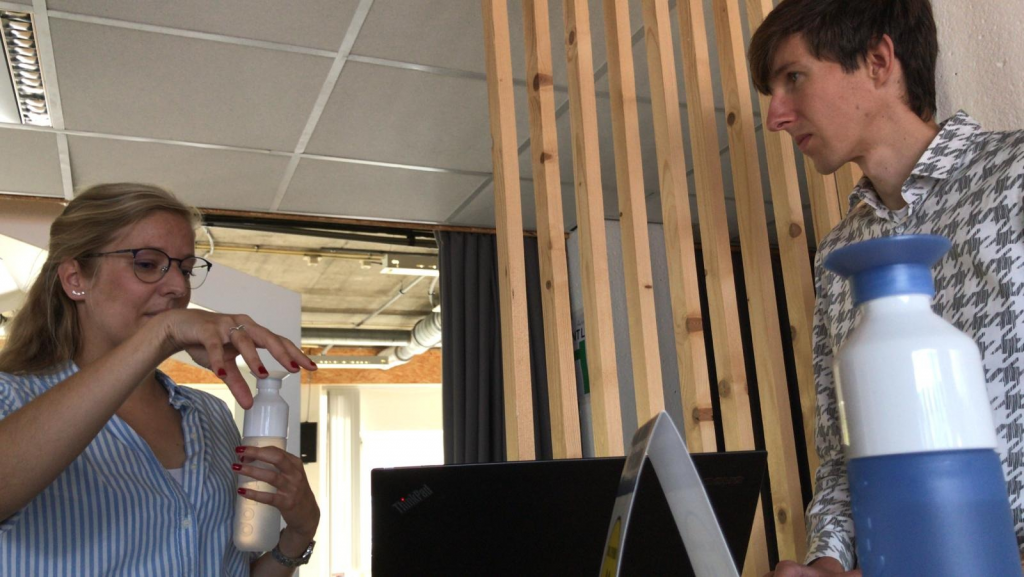
What is your key takeaway from this event?
Marco: To think “What do I need to figure out, so I can build a business on this idea starting next week?” Also I learned about SDG-11, sustainability in megacities and how the Copernicus satellites work.
Harmen: Don’t follow tools! Tools are there to help you to reach your goal. So keep your goal in mind. Secondly business ideas improve by explaining them, and by listening to the feedback. Lastly be in control, so communicate and know your limitations.
Mahabir: My takeaway is to “eat that frog“, which explains how you can do more in less time.
Manuel: Customer validation when you have an idea is always possible even during a weekend if you are proactive. Also working remotely and ideating is feasible if you have the correct tools and approach.
What will you remember most of this weekend?
Marco: Learning about ‘analogue astronauts’, learning about the International Space University and learning how varied the space-loving community is. And of course, the surprise of winning – without having a background in space.
Harmen: The PLNT venue, the interesting people I met, the puzzle of the business case and of course the great time during the process, winning the hackathon was really unexpected! I joined for the fun not for the gain.
Mahabir: Working through lots of business ideas, I made new friends, had great mentor guidance and of course the moment we heard we won.
Manuel: I will remember the fact that we had a mixed on site/remote team and found the way to get work done regardless, and lots of fun when discussing crazy ideas when ideating.
Congratulations to team ‘SmartLander’! We hope to see them make their idea a reality – and we hope to have you inspired to join us next year.
A Copernicus Hackathon is a programme developed by the European Commission and Copernicus. It was implemented by AZO and organised by SBIC Noordwijk and PLNT Leiden.


This year’s Copernicus Hackathon in Leiden was also made possible by our local competition partners and Sobloo. Without them there wouldn’t be a hackathon!
